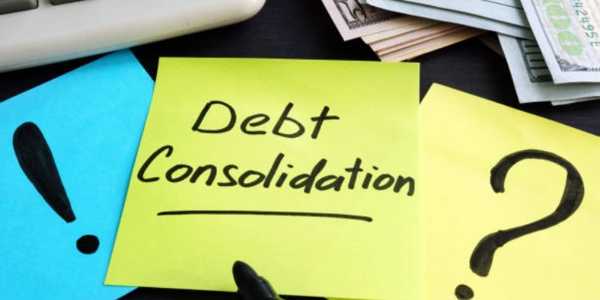Automotive
How To Use Credit Cards Responsibly During The Holidays
There’s something about the holiday season that makes people lose control. Suddenly, everyone becomes generous, carefree, and reckless—all in the name of “the spirit of giving.” Decorations go up, playlists change, and wallets open like floodgates.
There’s something about the holiday season that makes people lose control. Suddenly, everyone becomes generous, carefree, and reckless—all in the name of “the spirit of giving.” Decorations go up, playlists change, and wallets open like floodgates.
But here’s the problem: too many people forget that holiday spending comes with a bill. A real one. With interest. Using credit cards during the holidays isn’t the issue. The issue is the lack of restraint, the unnecessary purchases, and the refusal to accept that debt is not free money. It’s borrowed money—with consequences.
What Your Credit Card Means
Some people act like their credit card is a magic wand. Swipe here, tap there, and poof—gift bags and electronics appear. But that’s not how it works.

A credit card is not a measure of your wealth. It’s not an extension of your salary. It’s not a reward for surviving the year. It is a loan. And like any loan, it comes with interest rates, billing cycles, and late fees. If you don’t understand that, then you're not ready to use one—holiday or not.
Set a Holiday Spending Limit Like a Grown Adult
Holidays are not an excuse to act like your brain went on vacation. Set a limit for your spending and stick to it. If you can’t buy something without maxing out your card or dipping into next month’s paycheck, then you don’t need it.
Adults budget. Children want everything they see. If you claim to be an adult, then act like one. Write down how much you want to spend—on gifts, travel, decorations, food—and divide that responsibly. Leave emotional spending out of the equation. The holiday doesn't need you to go broke trying to impress people who might not even remember what you gave them.
Pay Off Purchases Immediately, or Don’t Swipe at All
Interest is the price you pay for convenience. Every time you carry a balance on your credit card, you invite interest into your financial life. And it’s not kind. It’s not forgiving. It doesn’t care that you were in a festive mood when you overspent.
If you can't pay for something within the next 30 days, skip it. Swipe with the mindset that the money will be withdrawn from your bank account before the end of the month. That's how responsible people avoid falling into the debt trap. Waiting until January or February to deal with December's mistakes is how many people start every new year behind.
Know Your Credit Utilization Ratio
Here’s another thing nobody tells you: going anywhere near your credit limit can hurt your credit score, even if you’re making payments. Using too much of your available credit makes you look risky to lenders.

A good rule is to stay below 30% of your credit limit at all times. If your card limit is $5,000, your balance shouldn’t go over $1,500. That’s not a suggestion—that’s a protective boundary. Violating it can cost you more than you think.
Don’t Open New Cards Just for Holiday Discounts
Retailers are aware that people tend to be more impulsive during the holidays. That's why they'll dangle store credit cards in front of you like candy. "Get 20% off today's purchase." "Sign up now and enjoy rewards." It sounds nice—until you realize what you signed up for.
New credit inquiries can affect your credit score. Store cards also tend to have ridiculous interest rates, low limits, and limited use. Accepting a card just because someone at the counter asked you to shows you were never in control, to begin with. Decline and move on. Loyalty to your budget is more important than loyalty points.
Stop Trying to Impress People with Money You Don’t Have
Here's an uncomfortable truth: some people are racking up credit card debt to appear generous and buying expensive gifts, hosting parties, travelling, and posting about it as if everything is fine. But it's not fine if you'll be crying over your statement in January.
If the holidays make you feel like you have to overspend to prove something to friends or family, the issue isn't the season—it's your self-worth. Genuine love and respect don't come with price tags. Anyone who judges you based on what you give them is never worth the effort.
Buy what you can afford. Give what makes sense. Stop trying to buy people’s love.
Make Use of Credit Card Rewards—The Smart Way
Some people ignore rewards points, and cashback offers out of ignorance. Others chase them like it's a side hustle. Both approaches are wrong.
Suppose your card offers points or cash back; that's great. But don't go spending more to rack them up. That's the bait. Spend only what you were already planning to spend. If you earn rewards on top of that, then you've done it right.
Also, check expiration dates, minimum redemption thresholds, and blackout periods. Don’t let your rewards go to waste because you didn’t read the fine print.

Watch Out for Holiday Scams and Fraud
The holiday season brings out two types of people in droves: shoppers and scammers. If you're going to use your credit card, ensure you're doing so on secure websites or trusted platforms. Don't be so eager to grab a deal that you ignore the obvious red flags.
Avoid clicking on suspicious emails or links that offer "too good to be true" deals. Use credit cards that offer fraud protection. Monitor your transactions daily. If anything appears to be incorrect, please report it immediately. Waiting too long only gives scammers more room to steal from you.
Learn to Say “No”—To Yourself and Others
The holidays will test your boundaries. People will ask for help. Kids will want the latest gadgets. Friends will expect gifts. And your desires will whisper, "You deserve it." But maturity is knowing when to say no—even to yourself.
You don’t owe anyone a holiday miracle funded by credit card debt. You don’t have to say yes to every invitation, purchase, or request. Saying no is not selfish—it’s responsible. And anyone who truly cares about you will understand.
Start the New Year Without Debt Regret
January should be a time of reflection and planning, not regret and damage control. How you handle your credit card today determines how your finances look tomorrow. Overspending may feel harmless when the lights are twinkling and the music is playing, but those feelings fade—and the debt remains.
If you want to enjoy the holidays, do so wisely. Credit cards can be valuable tools, but only when handled with clarity, discipline, and self-respect. Don't start the new year cleaning up a mess that could have been avoided with just a little restraint.
Be brighter than the season. Let your financial decisions reflect your maturity, not your impulses.
Trending








